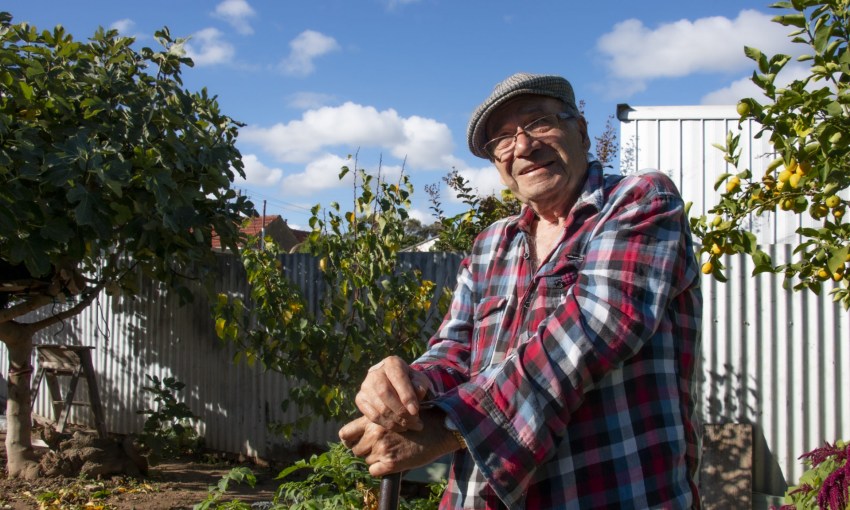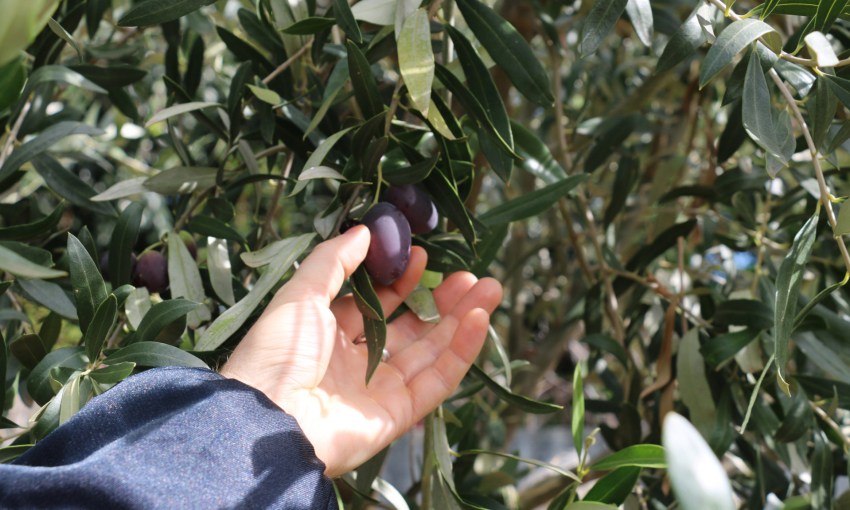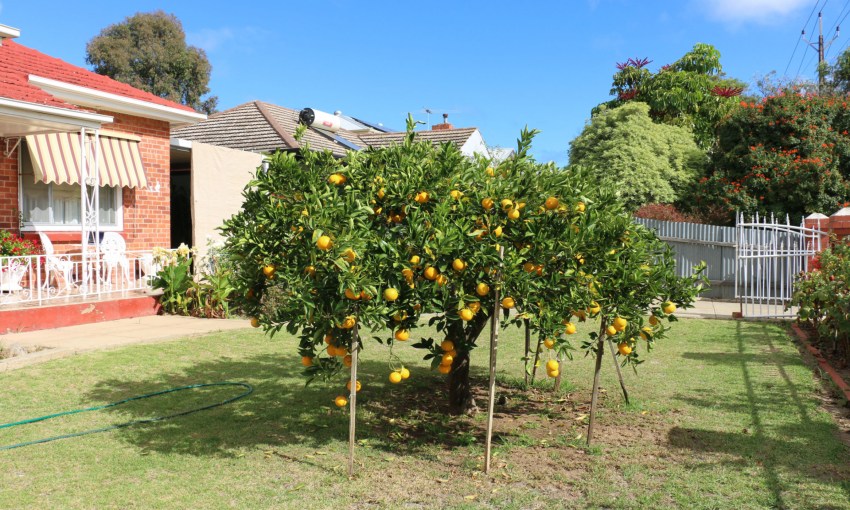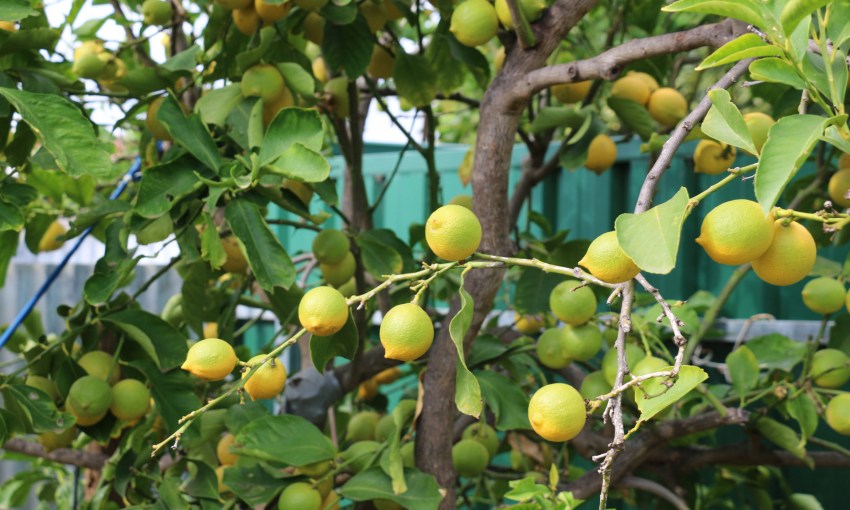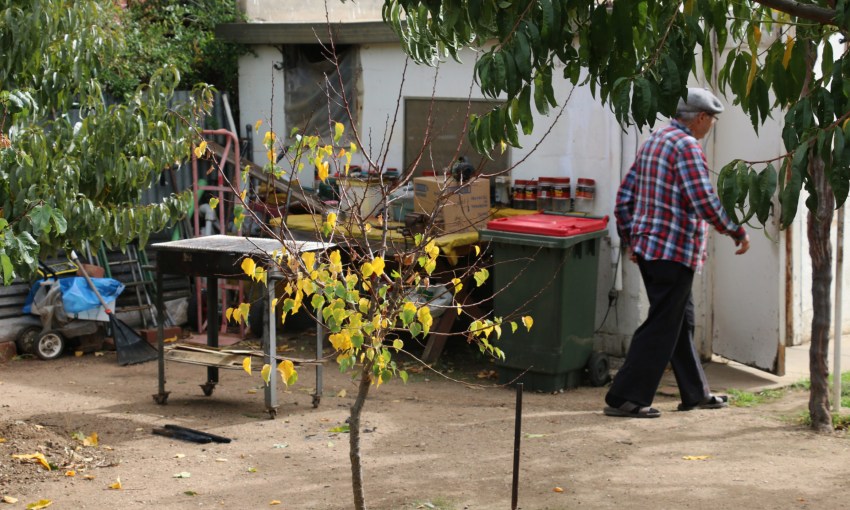A History Festival photography exhibition looks in on the lawns and veggie patches of elderly Italian and Greek migrants. Inspired, journalist Angela Skujins visited her Greek grandparents' garden to learn how they made theirs a home away from home.
Cucumbers and concrete driveways: Celebrating SA’s Mediterranean gardens
Being a Greek vegan is problematic.
Gardens of Promise: Celebrating the Traditions of the Migrant Garden
North Adelaide Community Centre
176 Tynte Street, North Adelaide SA
Event launch 2pm Sunday, 16 May. Bookings essential.
More info here.
Though the rise of plant-based eating options (and a game-changing meat-free yiros from Staazi & Co) has brought vegan Mediterranean food into the mainstream here in Adelaide, my grandparents will still offer me lamb cooked on the spit.
They come from a tiny coastal village called Kalamos, an hour’s drive north of Athens, Greece’s capital, and grew up poor as peasant farmers.
One of the reasons they migrated to Adelaide in the early 1960s was to pursue a better life, one where they and their children had plenty to eat.
The reason my grandparents still offer me lamb, despite my long-standing preference of not eating meat, is this is something they didn’t have in Greece.
What they did have, however, was vegetables.
“In Greece, we would garden from sun up to sundown,” says my yiayia (grandmother), Angela Vlahos, half a century later from the garden of her Clovelly Park property.
“We grew everything – wheat products, barley, beans. We only [grew] things to eat. There were some flowers, but mostly food. It’s what we did in Greece to help the family.”
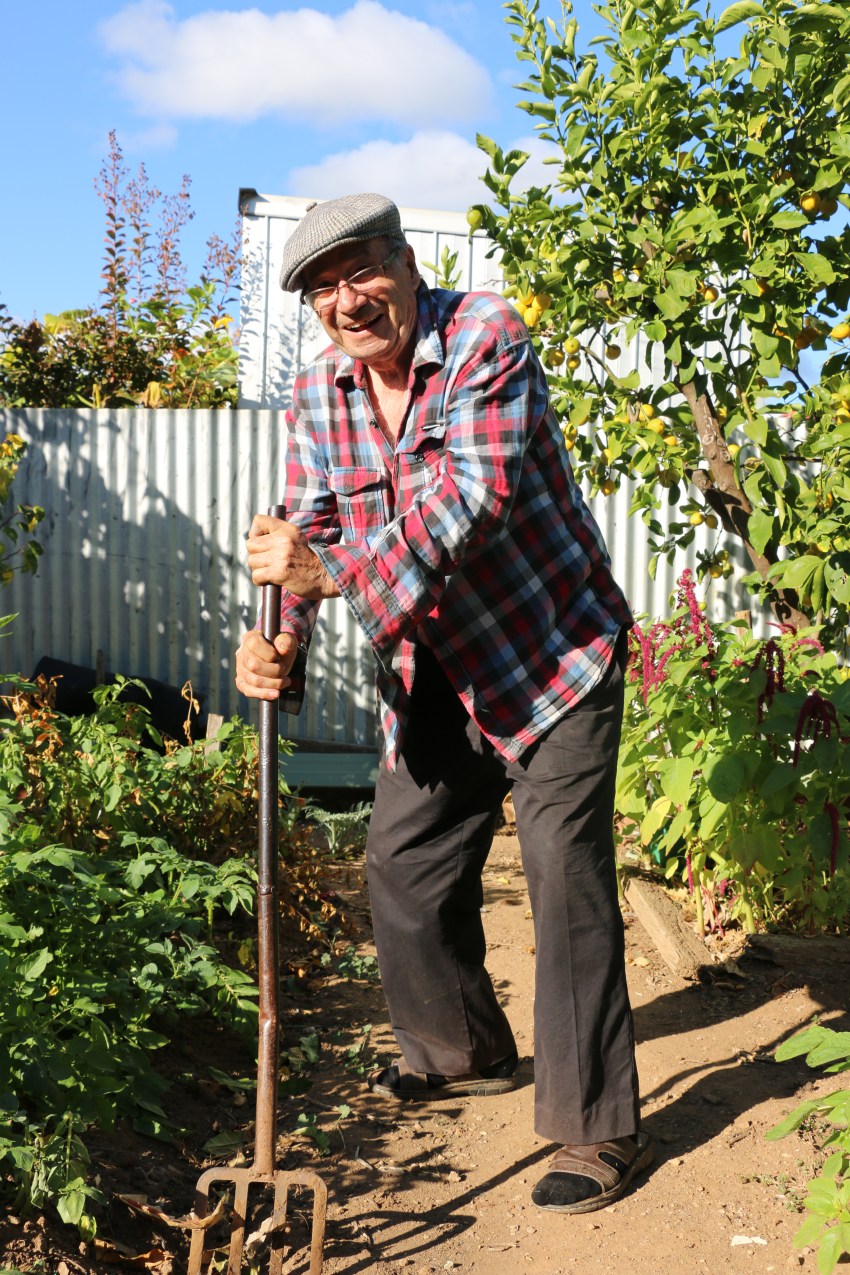
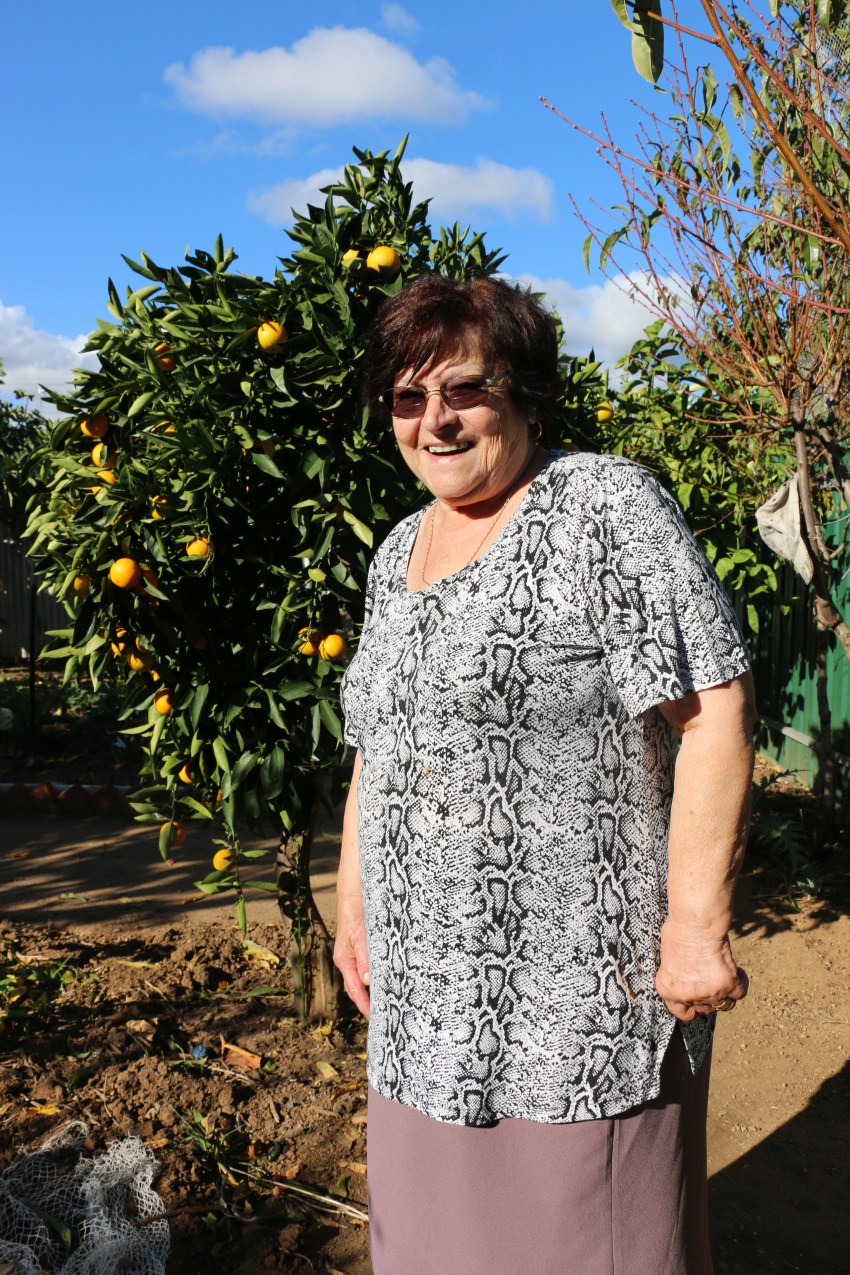
Above: Angela Vlahos; and Harry Vlahos
My yiayia and pappou (grandfather), Harry Vlahos, purchased their brick Clovelly Park home in 1962 after migrating a couple of years prior.
The house came with a front garden, where there is now a healthy orange tree surrounded by neatly trimmed grass and decorative flowers, and a back garden, which, during my visit, is bursting with rows of fruit trees and winter vegetables.
Though it produces plenty of food, to my grandparents the garden is not purely functional. Yiayia and Pappou enjoy the process of gardening.
Pappou wakes up at 8am every day to tend to his produce, making sure everything is in working order. For Yaiyia, the yard helps her remember where she came from.
“There used to be three pine trees [out the front of the house],” my mum, Kerry Skujins says, while translating, “and in Greece, they’re the trees that you grow in the borders of cemeteries. Yiayia took them out.”
“One was out the front near the window, really big,” Yiayia says, laughing.
“There were others down that lane and higher. At that time, I was very young and was strong from working in the garden. I took them out in 1960. Digging. Took them out with a pick.”
— Joanna Tsalikis
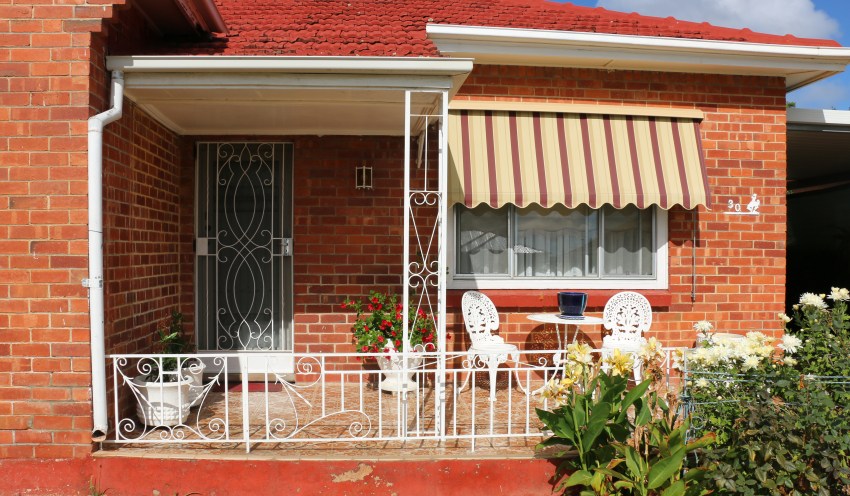
The front of the house where the pine tree once stood
My yiayia and pappou’s garden is just one in a constellation of Mediterranean green spaces throughout South Australia, founded and lovingly tended by European migrants who came to Australia in the ’50s and ’60s.
Some of these gardens are set to be showcased in a photographic exhibition, Gardens of Promise: Celebrating the Traditions of the Migrant Garden, organised by the South Australian chapter of the Organisation of Hellene and Hellene-Cypriot Women of Australia (OEEGA).
Happening from 16 May at the North Adelaide Community Centre at as part of the History Festival, Gardens of Promise will display 10 stories told through photographs and written text, organised by curator Joanna Tsalikis.
The collection is a collage of mostly 85- to 97-year-old Greek and Italian gardens, and showcases the wide variety of traditions found in these suburban pastures.
Joanna fears the knowledge these migrants have built up in their years of urban gardening won’t trickle down into younger generations.
“With some of the people I’ve spoken to, they don’t use any kind of fertilisers. They’re completely organic,” Joanna says, “[and] it’s great to embrace growing your own food.
“It’s very important that we try and hang on to those traditions, because I have tremendous respect for those people that were the migrants, who came out before us and brought those skills and abilities. Because we have a Mediterranean climate here, let’s make use of that.”
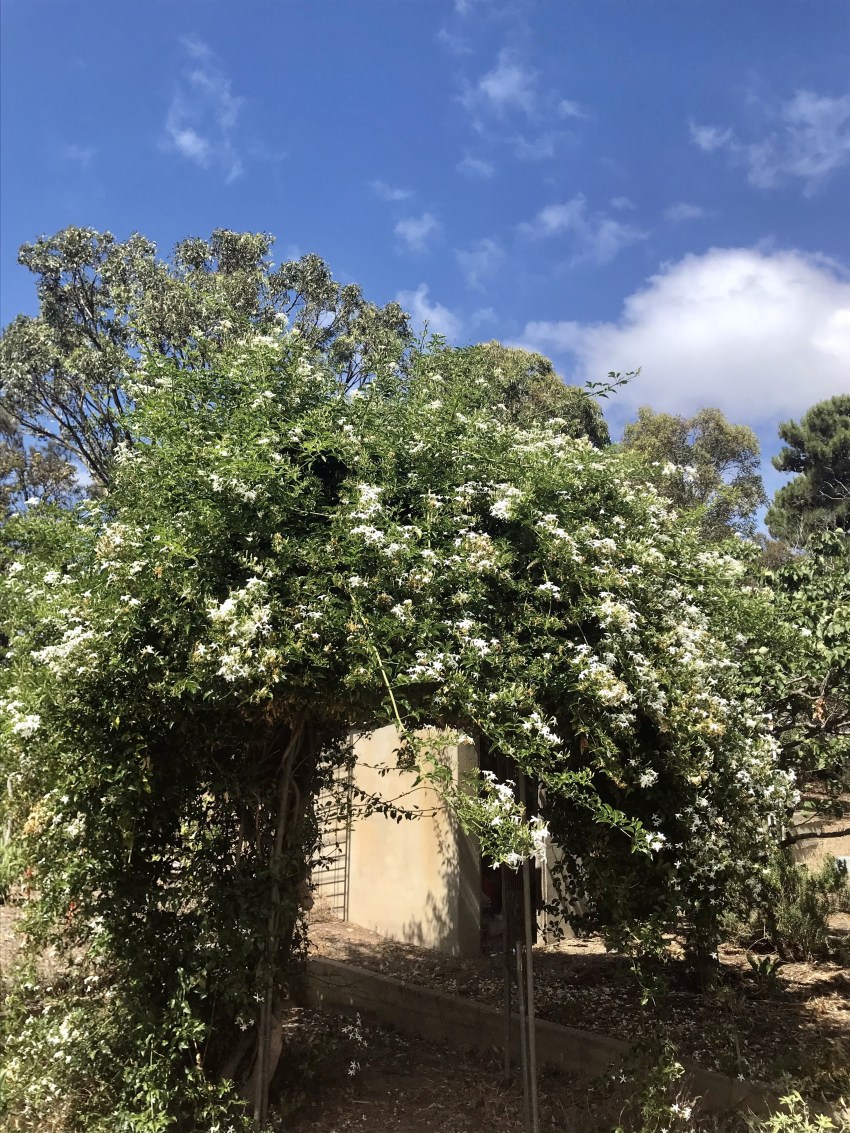
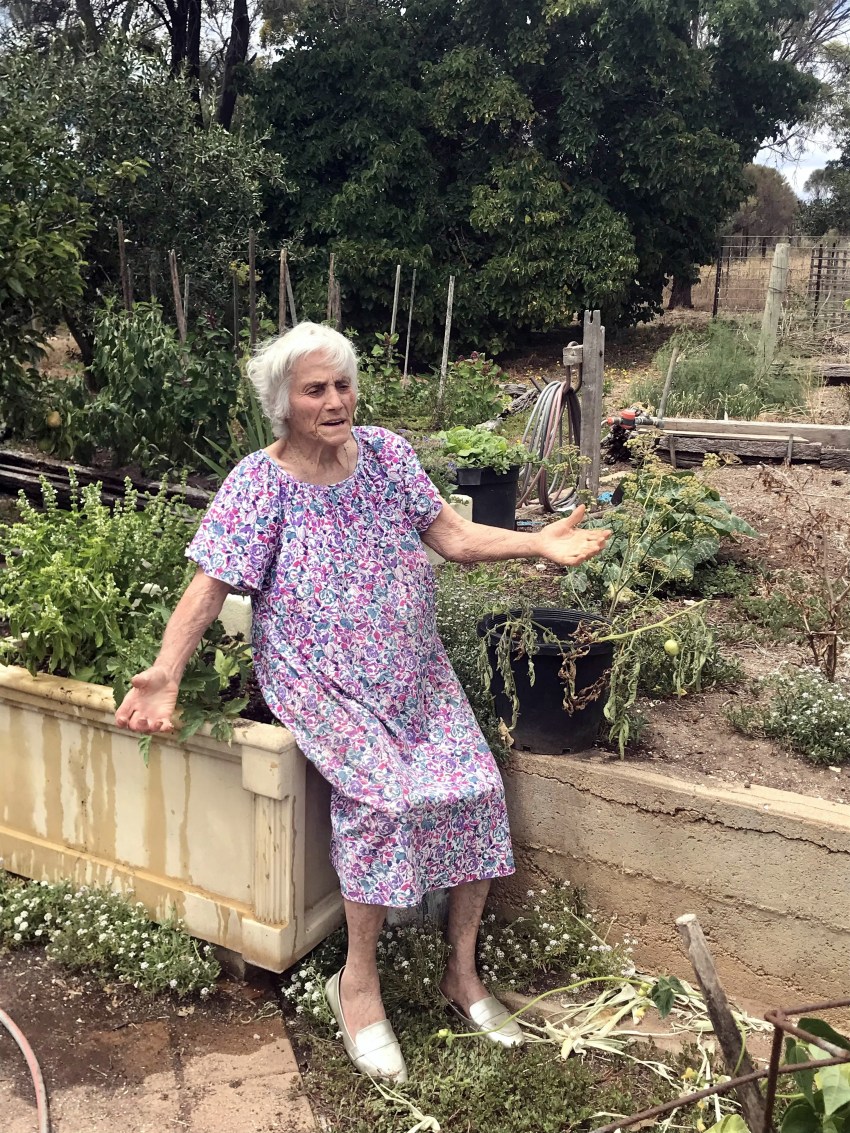
Above: Toula Stevens, who is 97 years old, in her garden. She is one of the stories told in Gardens of Promise; Toula’s impressive jasmine archway. These pictures: Joanna Tsalikis
Trevor Nottle has written 24 books on the history of Australian gardening and is a guest speaker at the first night of Gardens of Promise.
He says the Mediterranean-style gardens in South Australia’s migrant communities are worthy of spotlighting not only because of the culture sewn into the soil, but also because they’re well-suited to our climate.
Despite being part of the South Australian community for decades, Trevor says it wasn’t until the Millennium Drought that Anglo gardeners looked over their fence and asked their Greek, Italian and Portuguese neighbours how they got their grass so green.
“They are part of our history and they have been repressed for a long time or ignored by the wider community,” Trevor says.
“You won’t find many Italian or Greek or Chinese or Vietnamese gardens that are part of the Open Gardens scheme, for instance. You’ll find hardly any. And there’s this cultural acceptance thing, and giving up an old tradition and replacing it with a new one and accepting it. It just takes a while and we need to keep working on it.”
Open Gardens SA’s treasurer, Rob Andrewartha, couldn’t give CityMag a number of gardens from diverse homeowners displayed as part of the program in the las 12 months, but he says they aim to exhibit a “diverse and inclusive” range of grassy spaces.
Back in the ‘burbs, Yiayia and pappou tells this journalist they don’t recall receiving compliments from their neighbours on their flowers or vegetables. But we get the impression they don’t mind.
“Everyone has a garden,” Yiayia says.
Gardens of Promise: Celebrating the Traditions of the Migrant Garden kicks off at 2pm on Sunday 16 May at the North Adelaide Community Centre. More info here.
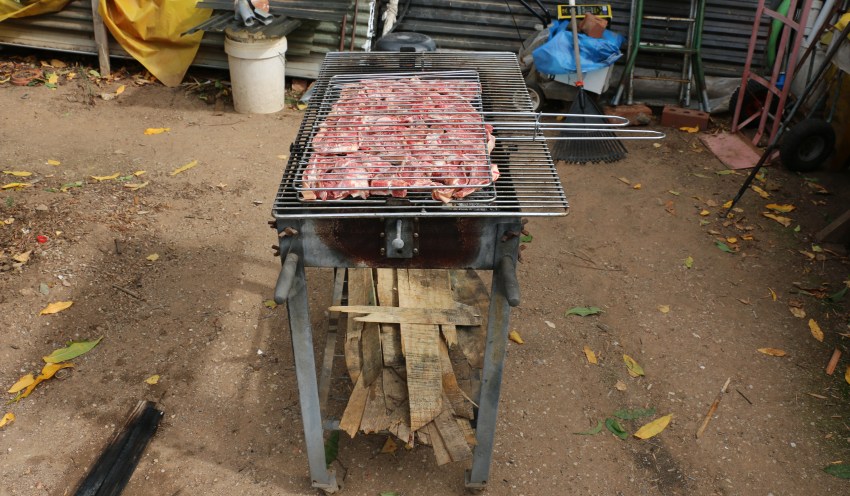
In Clovelly Park, the barbecue is as traditional a garden feature as a birdbath



